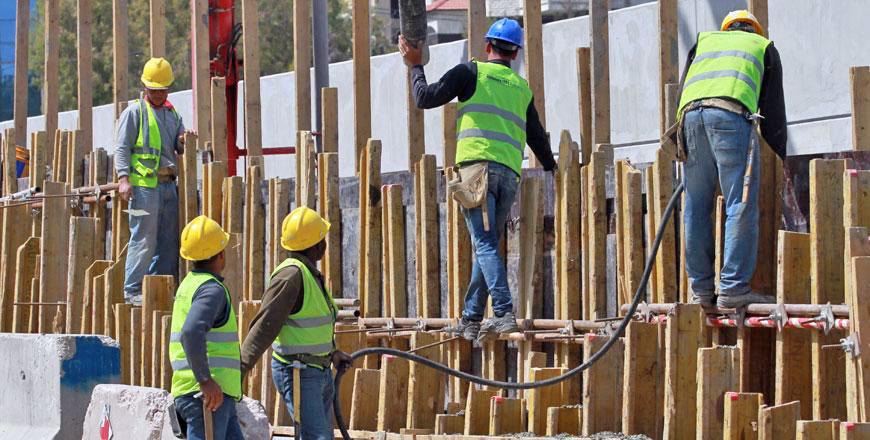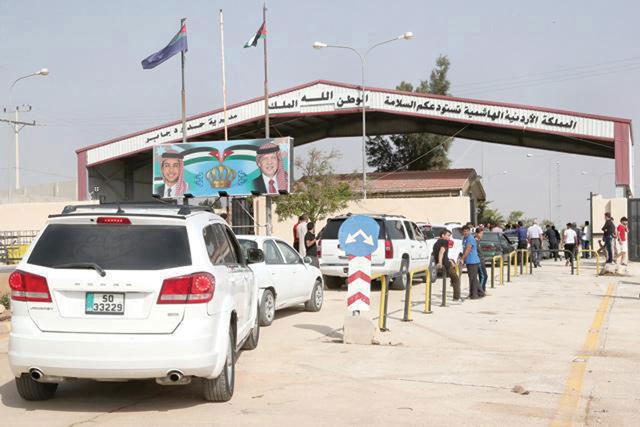You are here
138,000 Syrian refugees obtained work permits — UNHCR
By Elizabeth Turnbull - Jul 08,2019 - Last updated at Jul 08,2019

The UNHCR on Sunday said that 45 per cent of working-age Syrian refugees have labour permits, however, rates among women remain drastically lower (JT file photo)
AMMAN — Since 2016, when the Kingdom signed the Jordan Compact pledging to facilitate Syrian access to the labour market in return for aid, 45 per cent of working-age Syrian refugees have been issued work permits.
There are over 650,000 refugees registered with the UNHCR in Jordan, and of those, 300,000 are of working age of which 138,000 obtained work permits, according to UNHCR data.
However, regardless of such efforts, many challenges still make it difficult for Syrian refugees to obtain work, UNHCR Jordan spokesperson Lily Carlisle told the Jordan Times.
Currently, only 4 per cent of work permits are issued to women, although this percentage rises to 14 per cent in Zaatari refugee camp, according to Carlisle.
"Refugees are eligible to work in the agriculture, manufacturing, construction and hospitality industries and so those without these skills find it difficult to find work," Carlisle said.
While such refugees are allowed to register and operate a business and to work in occupations open to foreigners, they are not allowed to work in health, teaching, engineering and technical professions, according to the UNHCR.
“Syrians compete with Jordanians in some professions and unemployment is high among Jordanians... it is not only difficult for Syrians to find a job, but also for Jordanians,” an economist, who preferred anonymity, said Sunday.
“At the beginning of issuing the permits, the government did not take any charges and Syrians were and still are reluctant to apply for these permits, although there have been many calls and campaigns to encourage them to do so,” he added.
Despite these obstacles, Zeid Hraki, a Syrian refugee who lives in Amman’s Hashemi Shamali area, said having a work permit has made his life feel more secure.
“When I came to Jordan with my family in 2013 I worked in different professions, but mainly in supermarkets... at the beginning I worked illegally like all other refugees, but when I had the chance to get the work permit I applied for it,” Hraki told The Jordan Times on Sunday.
“I feel safe and I can look for a job anywhere with the work permit that I have... Many refugees still do not have permits, fearing that aid they receive from UN agencies will stop, but I obtained one and I still receive some aid,” he added.
Still, not all Syrian refugees find them necessary. Abu Jalal is one such refugee who has held off on obtaining a permit.
“I do not think I need it,” Abu Jalal told The Jordan Times. “I have been working since I arrived in 2014 without it and I do not think it will add anything to me... Hundreds of thousands of refugees still have not obtained it and I have many friends who work in several professions and do not have one.”
Because many refugees work in the informal economy or in an informal way, the percentage of refugees who have obtained a work permit is a subject of debate, according to Labour Watch Director Ahmad Awad.
“The number of work permits is much lower, nearly one-third of that number,” Awad told The Jordan Times on Sunday. “The majority of Syrian workers in Jordan do not wish or prefer [not] to obtain work permits for many reasons, the most important of which is that wages in the informal economy are higher than those in the formal economy where wages are [often] close to minimum wage, and they are also afraid to obtain work permits because they feel, perhaps inaccurately, that they will lose some of the benefits they receive as refugees.”
Related Articles
AMMAN — The Ministry of Labour has issued over 153,000 permits for Syrian refugees since the beginning of 2016, a United Nations High Commis
AMMAN — The UNHCR has called on the international community to show more solidarity with Jordan and the refugee agency in meeting the needs
AMMAN — Since the Jaber/Nassib border crossing reopened in mid-October of last year, some 20,000 Syrian refugees have returned to Syria, wit
















